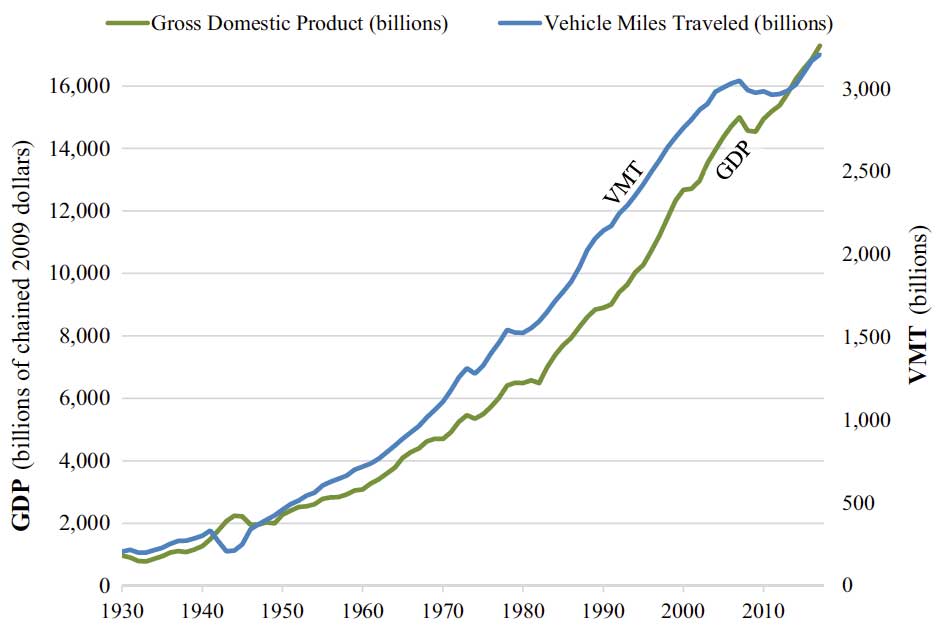 Posted Jun 10, 2018, 8:16 PM
Posted Jun 10, 2018, 8:16 PM
|
 |
Registered User
|
|
Join Date: Aug 2002
Location: Toronto
Posts: 52,200
|
|
|
Congestion can be good, study reports
Congestion can be good, study reports
JUN. 6, 2018
By ROBERT STEUTEVILLE
Read More: https://www.cnu.org/publicsquare/201...-study-reports
Quote:
....
A groundbreaking study by researchers at the University of Colorado at Denver and Florida Atlantic University concludes that traffic congestion does not slow down economies, productivity, or job growth.
- "Our findings suggest that a region’s economy is not significantly impacted by traffic congestion. In fact, the results even suggest a positive association between traffic congestion and economic productivity as well as jobs," say authors Wes Marshall and Eric Dumbaugh.“ --- Without traffic congestion, there would be less incentive for infill development, living in an location-efficient place, walking, biking, and transit use, ridesharing, i --- nnovations in urban freight, etcetera,” Marshall explained by email. “And if your city doesn't have any traffic congestion, there is something really wrong.”
- Conventional wisdom regarding traffic congestion suggests that higher levels of peak hour delay would be associated with decreases in GDP and jobs as well as higher wages to compensate workers for the increased costs of travel. We did not find this to be the case. For our regions, peak hour delay had a statistically significant and positive effect on both per capita GDP and jobs. This suggests that our current concerns about traffic congestion negatively impacting the economy may not be particularly well founded. --- In terms of per capita income, the results were statistically insignificant. Thus, regions with more congestion were more economically productive with more jobs, and this took place without traffic congestion manifesting itself with higher labor costs.
- “Congestion in 498 metropolitan areas caused urban Americans to travel 5.5 billion hours more and to purchase an extra 2.9 billion gallons of fuel for a congestion cost of $121 billion.” --- On the contrary, traffic congestion may entice positive adaptations. “For instance, traffic congestion could potentially lead to positive economic externalities such as infill development (via improved location efficiency), more efficient travel patterns, and/or agglomeration benefits. People may also adapt to high levels of traffic congestion by switching to other travel modes.
- “Case in point: of the ten most congested cities in the recent Urban Mobility Report, seven of those cities rank in the top ten for lowest driving mode share. Eight of the top ten congested cities rank in the top ten for highest transit mode share, and four rank in the top ten for highest active transportation mode shares. “It would make sense for individuals and businesses to respond to traffic congestion by changing modes or locations, but there might also be higher-level shifts toward a greater concentration of industries—such as professional service and tech industries—that would be less impacted by traffic congestion than industries such as manufacturing.”
- Marshall acknowledges that not all congestion is created equal, and further research is needed to explore the impacts of particular kinds of congestion. --- The good congestion could be described as a place, like a city center with lots of destinations or a historic town with nice architecture, that is so popular and appealing that it is crowded. If you are stuck in traffic on a freeway, on the other hand, that’s bad congestion. The data used in this study could not distinguish qualitative congestion types, but new datasets might be able to do that, Marshall says.
.....
|
Conventional thinking sprang from the long-time correlation of rising vehicle miles traveled and rising gross domestic product (GDP). But correlation does not equal causation, and that correlation did not hold from the late 1990s to about 2013.

__________________
ASDFGHJK
|



